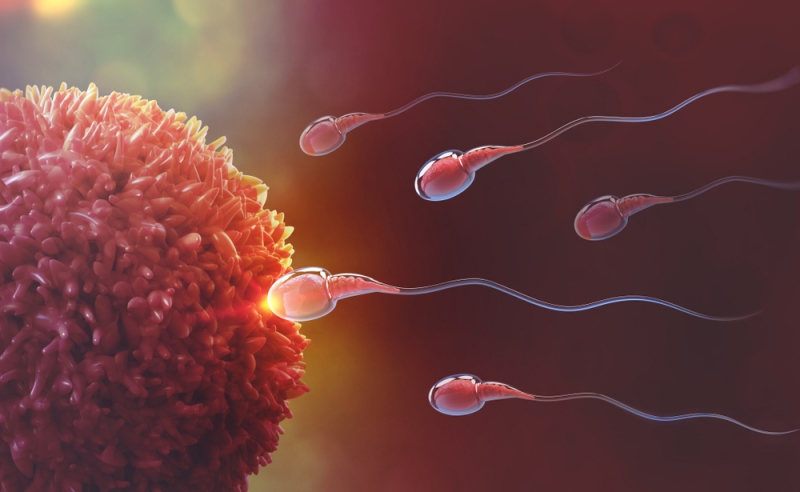Decline in human sperm quality is now a reality worldwide, with greater prevalence in developed and industrialised countries, pointing to changes in modifiable lifestyle factors as the main causes.
The literature contains numerous studies linking sperm quality to whole dietary patterns, food groups and individual nutrients, dietary supplements and antioxidants.
Although the picture of the relationship between diet, sperm quality and fertility is far from complete, some general conclusions are emerging and certain nutrients appear to play key roles.
Firstly, adherence to healthy dietary patterns is positively associated with sperm concentration and motility. In terms of food groups, vegetables, fruits, nuts and whole grains, all rich in fibre and antioxidants, and fish, seafood, shellfish, poultry and low-fat dairy products have been positively associated with sperm quality.
Finally, increased intakes of selenium and zinc, omega-3 fatty acids, coenzyme Q10 and carnitine supplements were positively related to sperm quality.
A recent meta-analysis investigated the effect of oral micronutrient supplementation on male fertility, showing a significant improvement in semen parameters for selenium (200 and 100 µg/day), L-carnitine (2g/day) and acetyl-L-carnitine (1 g/day) and coenzyme Q10 (200 and 300 mg/day).
The same systematic review identified promising data for supplementation with 66 mg/day of zinc combined with folic acid (5mg/day) and polyunsaturated fatty acids and eicosapentaenoic (Epa – 1.12g/day) and docosahexaenoic (Dha – 0.72g/day) acids.
It is clear from observations of past studies, in animals as well as humans, that selenium is required for spermatogenesis and male fertility, presumably because of its vital role in modulating antioxidant defence mechanisms and other essential biological pathways and oxidation-sensitive transcription factors. While it is clear that selenium plays a role, it is more complex to understand which molecular form has the greatest integrative potential, whether as glutathione peroxidase 4 (Gpx4) or selenoprotein P (Selenop) or even other forms of selenoprotein.
Among the micronutrients evaluated on sperm quality is boron, and a very recent study evaluated in goats precisely the supplementation of this mineral on sperm production, sperm quality, immunity and molecular changes in the testis, blood and seminal plasma.
The study revealed that supplementation increased sperm production and motility, and improved immune and antioxidant capabilities. There was a significant increase in the expression of serine proteinase inhibitor (Serpin) mRna and interferon γ (Ifnγ) in the testis of the animal supplemented with boron, compared to the control group, leading to the suggestion that the improved semen quality may be attributed to improved expression of testicular Serpin, a protein crucial for regulating the process of spermatogenesis.
While micronutrient supplementation has been the subject of several studies, including clinical trials, the literature becomes even more extensive when the role of botanicals is analysed. The use of 5g/day of mucuna seed powder and ashwagandha root, 151 and 143 ng/dL respectively for a period of 12 weeks in patients with oligozoospermia showed an increase in total testosterone concentration.
The use of mucuna alone, in the same concentration, for 12 weeks also showed an improvement in sperm parameters, with an increase of 83.3 million/mL, in patients with oligozoospermia.
Of the many botanical species analysed to date, there is only concrete evidence to support the use of African pigeon pea (Pygeum africanum Hook f.), Urtica dioica L. and plants from the Urticaceae family. The use of Tribulus terrestris, already known as a booster of total testosterone concentration but which has shown beneficial effects on sperm parameters only in men with idiopathic infertility, deserves special mention. Further examination of the literature reveals that many foods have been evaluated as promising possible fertility supports, and in effect there are rationales for using onion, garlic and tomato, and nutraceutical agents such as pollen extract and beta-sitosterols, but scientifically sound studies are still lacking before these foods can be attributed functional
Bibliography
Role of Selenium and Selenoproteins in Male Reproductive Function: A Review of Past and Present Evidences. Antioxidants (Basel). 2019 Aug 2;8(8).
Beyond tribulus (Tribulus terrestris L.): The effects of phytotherapics on testosterone, sperm and prostate parameters. Journal of Ethnopharmacology, Vol 235, 10 May 2019.
Influence of oral vitamin and mineral supplementation on male infertility: a meta-analysis and systematic review. Reproductive BioMedicine Online, Vol 39, Issue 2, August 2019.
Diet and sperm quality: Nutrients, foods and dietary patterns. Reproductive Biology. 30 July 2019
Dietary boron supplementation enhances sperm quality and immunity through influencing the associated biochemical parameters and modulating the genes expression at testicular tissue. J Trace Elem Med Biol. 2019 Sep.

